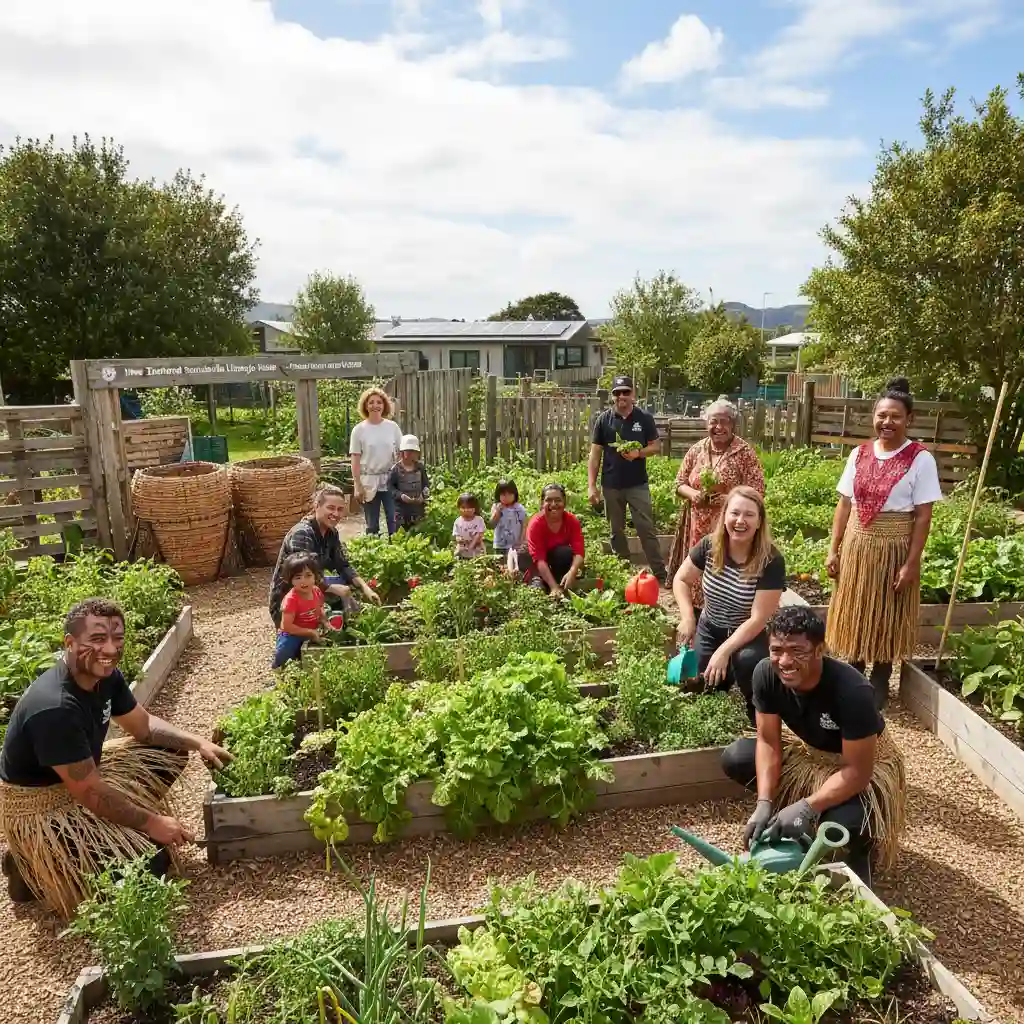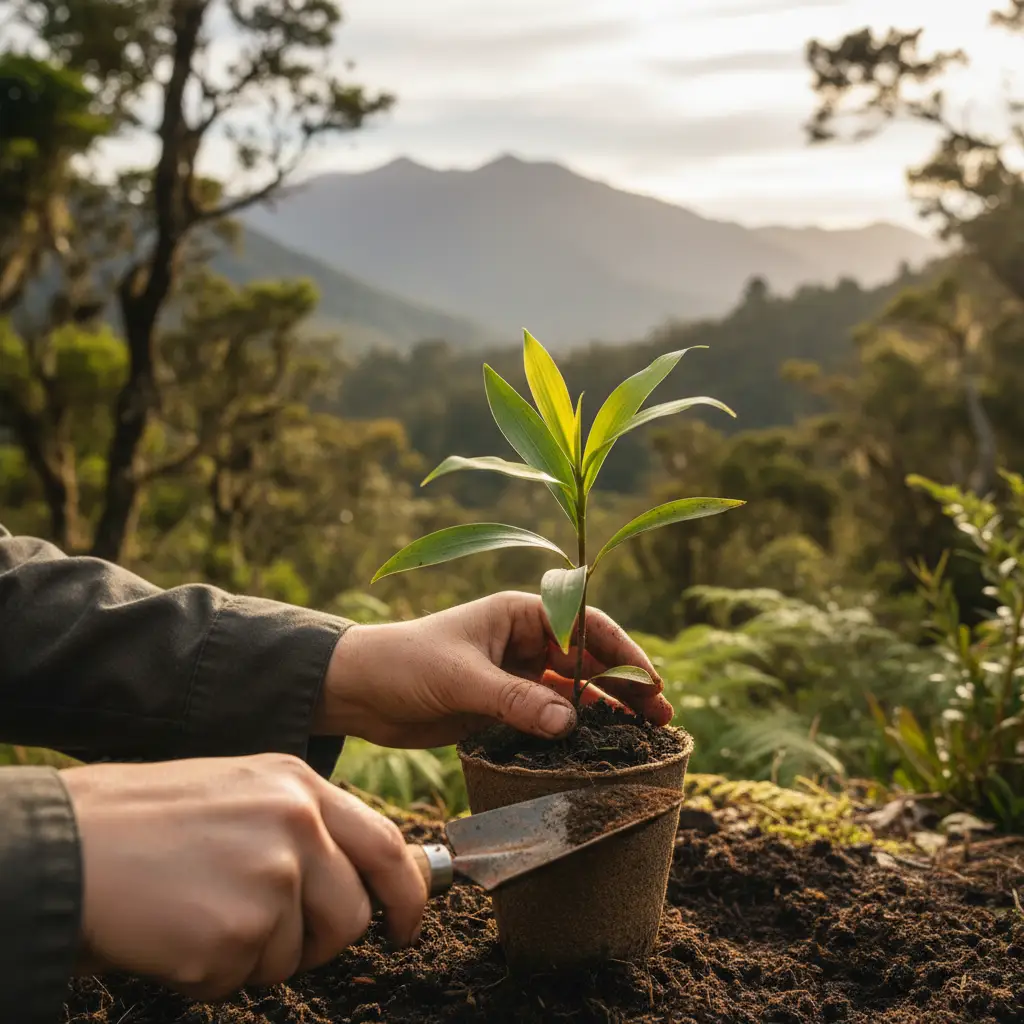Embracing Māori Wellness for Sustainable Living
In a world increasingly focused on environmental responsibility and holistic well-being, the wisdom of indigenous cultures offers invaluable insights.
For New Zealand, this wisdom is deeply rooted in Māori traditions, providing a profound framework for understanding our connection to the land, community, and ourselves.
Moving beyond traditional waste management, our journey towards a sustainable future in Aotearoa calls us to explore a more integrated approach to living.
This article delves into how embracing Māori wellness for sustainable living can guide us towards a more balanced, respectful, and regenerative lifestyle.
It’s about understanding that our well-being is inextricably linked to the health of our environment and the strength of our communities.
Table of Contents
- Te Whare Tapa Whā: The Four Cornerstones of Māori Wellness
- Kaitiakitanga: Guardianship of the Land and Sea
- Whanaungatanga: Community, Connection, and Collective Well-being
- Practical Ways to Embrace Māori Wellness for Sustainable Living
- The Broader Impact: A Resilient Aotearoa
- Conclusion
- Frequently Asked Questions
- References/Sources

Te Whare Tapa Whā: The Four Cornerstones of Māori Wellness
At the heart of Māori wellness is Te Whare Tapa Whā, a holistic health model developed by Sir Mason Durie. It likens well-being to a house with four walls, each representing a crucial dimension:
- Taha Tinana (Physical Health): Our body’s physical capacity and health. This extends to the physical environment we inhabit and its impact on our health.
- Taha Wairua (Spiritual Health): Our connection to the universe, nature, and the spiritual realm. For Māori, this often involves a deep reverence for ancestors and the natural world.
- Taha Hinengaro (Mental and Emotional Health): Our capacity to think, feel, and communicate. A healthy mind contributes to positive interactions and problem-solving for a sustainable future.
- Taha Whānau (Family and Social Health): The capacity to belong, to care for others, and to be cared for. Strong family and community ties are foundational to collective action for sustainability.
“When all four walls are strong and connected, the house stands firm, signifying a state of holistic well-being. This model inherently links individual health with environmental and social health, making it a perfect lens through which to view sustainable living.”
Kaitiakitanga: Guardianship of the Land and Sea
Perhaps the most well-known Māori concept relevant to sustainability is Kaitiakitanga. It embodies the profound responsibility of guardianship and protection of the natural world. This isn’t just about conservation; it’s an active, intergenerational duty to ensure the health and vitality of the environment for future generations.
Kaitiakitanga means seeing ourselves not as owners of the land, but as its stewards. It influences everything from how resources are managed to how waste is viewed, promoting a circular mindset long before the term was coined in Western discourse. It encourages us to live in harmony with nature, understanding that our well-being is directly tied to the well-being of Papatūānuku (Earth Mother) and Tangaroa (God of the Sea).
Stat Callout: New Zealand’s Biodiversity Under Threat
New Zealand’s unique biodiversity faces significant threats, with over 4,000 native species currently at risk or threatened.
Embracing Kaitiakitanga isn’t just a cultural ideal; it’s a practical imperative for protecting our precious natural heritage and achieving the nation’s ambitious environmental goals. (Source: Department of Conservation, 2023)

Whanaungatanga: Community, Connection, and Collective Well-being
Whanaungatanga speaks to the importance of relationships, kinship, and a sense of belonging. It’s about how we connect with each other, our families, and our wider community. In a sustainable living context, Whanaungatanga fosters collective responsibility.
When we feel connected to our community, we are more likely to participate in local initiatives, share resources, support local businesses, and work together to solve environmental challenges. This concept counters individualism, promoting the idea that our collective strength and well-being are paramount.
Practical Ways to Embrace Māori Wellness for Sustainable Living
Translating these powerful Māori concepts into daily actions is key to a truly sustainable lifestyle. Here are practical steps to integrate Māori wellness principles:
1. Reconnect with Papatūānuku (Earth Mother)
Spend time in nature – go for a walk in a native bush, swim in the ocean, or simply sit in your garden. Cultivate a garden, grow your own food, or participate in a community garden. Understand the seasonality of kai (food) and support local growers.
- Action: Volunteer for a local conservation project or beach clean-up.
- Action: Learn about the native flora and fauna in your area and their significance.

2. Embrace Conscious Consumption and Waste Reduction
Apply the spirit of Kaitiakitanga to your consumption habits. Consider the full lifecycle of products you buy – from origin to disposal. Prioritise ‘reduce, reuse, recycle’ but also ‘refuse’ unnecessary items and ‘repair’ what you have.
- Action: Shop locally and seasonally. Reduce plastic packaging.
- Action: Compost food scraps, diverting waste from landfills and enriching the soil.
3. Foster Whanaungatanga in Your Daily Life
Strengthen your connections with family, friends, and neighbours. Participate in local community events, share skills, and support initiatives that benefit the collective. Building strong social networks creates resilient communities capable of facing challenges together.
- Action: Offer to help a neighbour, or start a local sharing economy group.
- Action: Engage in discussions about local environmental issues.
4. Practice Mindful Living and Self-Care
Just as we care for the environment, we must care for ourselves (Taha Tinana, Hinengaro, Wairua). Engage in practices that nourish your mental and spiritual well-being, whether it’s meditation, exercise, or spending quiet time reflecting in nature. A healthy individual is better equipped to contribute to a healthy planet.

The Broader Impact: A Resilient Aotearoa
By collectively embracing Māori wellness for sustainable living, New Zealand can forge a path that is not only environmentally responsible but also culturally rich and socially equitable. These principles offer a timeless framework for building a truly resilient Aotearoa.
It’s a call to move beyond mere compliance and towards a deeper understanding of our role within the ecosystem, fostering a sense of shared responsibility and collective pride in our unique heritage. The strength of our future lies in learning from the wisdom of the past.
Conclusion
Embracing Māori wellness for sustainable living offers a powerful and holistic approach to the environmental challenges we face. By integrating the principles of Te Whare Tapa Whā, Kaitiakitanga, and Whanaungatanga into our daily lives, we don’t just reduce our ecological footprint; we enrich our personal well-being, strengthen our communities, and deepen our connection to the land we call home.
This journey invites all New Zealanders to learn from and respect the indigenous wisdom that has sustained this land for centuries, paving the way for a more sustainable and harmonious future for generations to come. Let’s build a stronger, healthier Aotearoa together.
Frequently Asked Questions
What is Te Whare Tapa Whā?
Te Whare Tapa Whā is a Māori model of health and well-being developed by Sir Mason Durie. It describes health as a whare (house) with four walls: Taha Tinana (physical health), Taha Wairua (spiritual health), Taha Hinengaro (mental/emotional health), and Taha Whānau (family/social health). When all four walls are strong, the house stands firm, representing holistic well-being.
How does Kaitiakitanga relate to sustainable living?
Kaitiakitanga is the Māori concept of guardianship and protection of the natural environment. It means acting as a steward for the land, sea, and resources, ensuring their health and vitality for future generations. This directly translates to sustainable living by promoting responsible resource management, conservation, and a deep respect for nature.
Can anyone apply Māori wellness principles to their life?
Yes, while these principles originate from Māori culture, their core messages of holistic well-being, environmental stewardship, and community connection are universal. Anyone can learn from and apply the essence of Te Whare Tapa Whā, Kaitiakitanga, and Whanaungatanga to enhance their own sustainable lifestyle and contribute positively to their environment and community.
References/Sources
- Durie, M. (1998). Whaiora: Māori health development. Oxford University Press.
- Māori Environmental Glossary. (n.d.). Ministry for the Environment. Retrieved from environment.govt.nz/glossary
- Department of Conservation. (2023). Threatened Species. Retrieved from doc.govt.nz/nature/conservation/threatened-species/
- Te Puni Kōkiri. (n.d.). Māori health and well-being. Retrieved from tpk.govt.nz/en/a-to-z-topics/maori-health-and-well-being/

